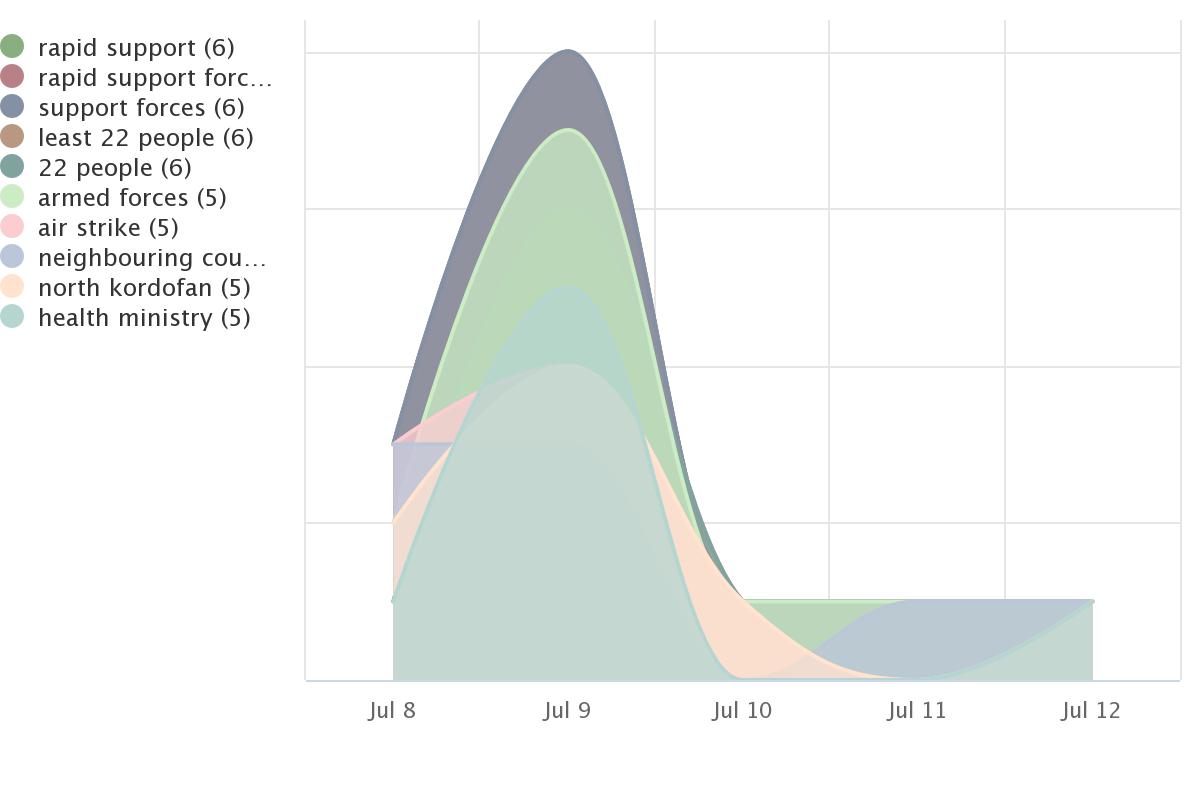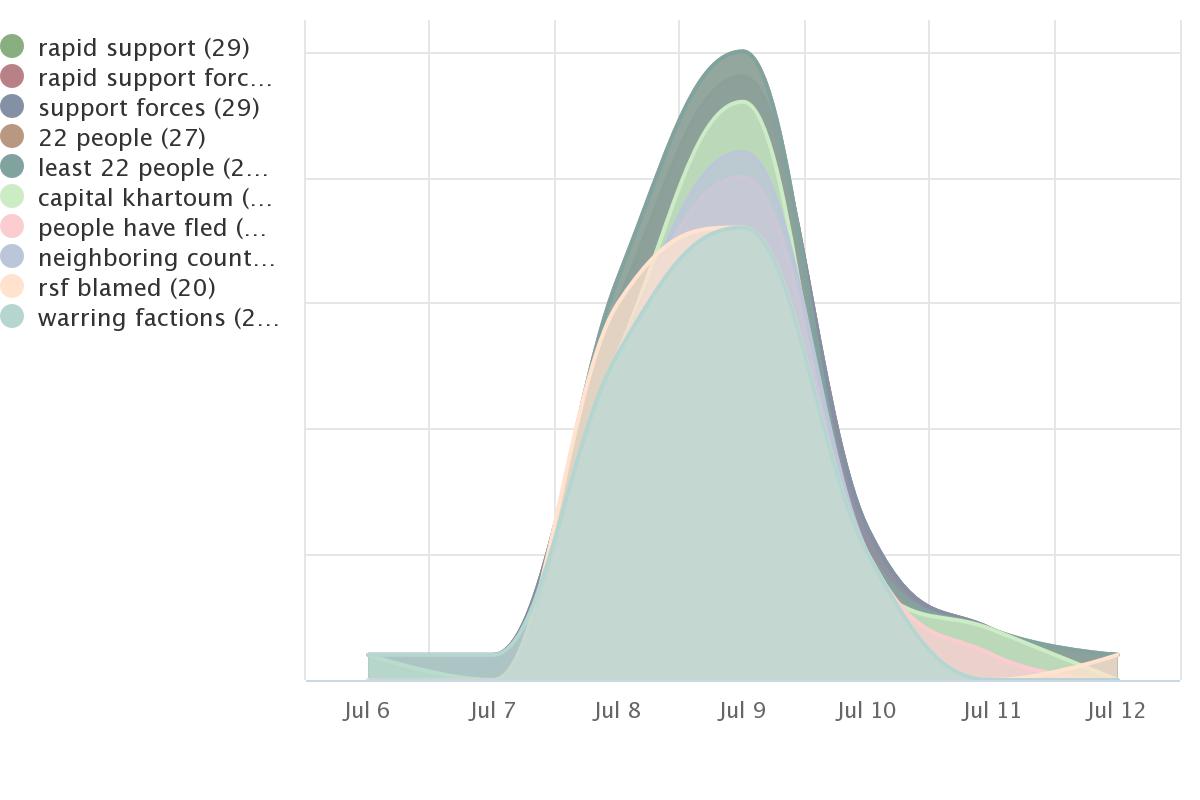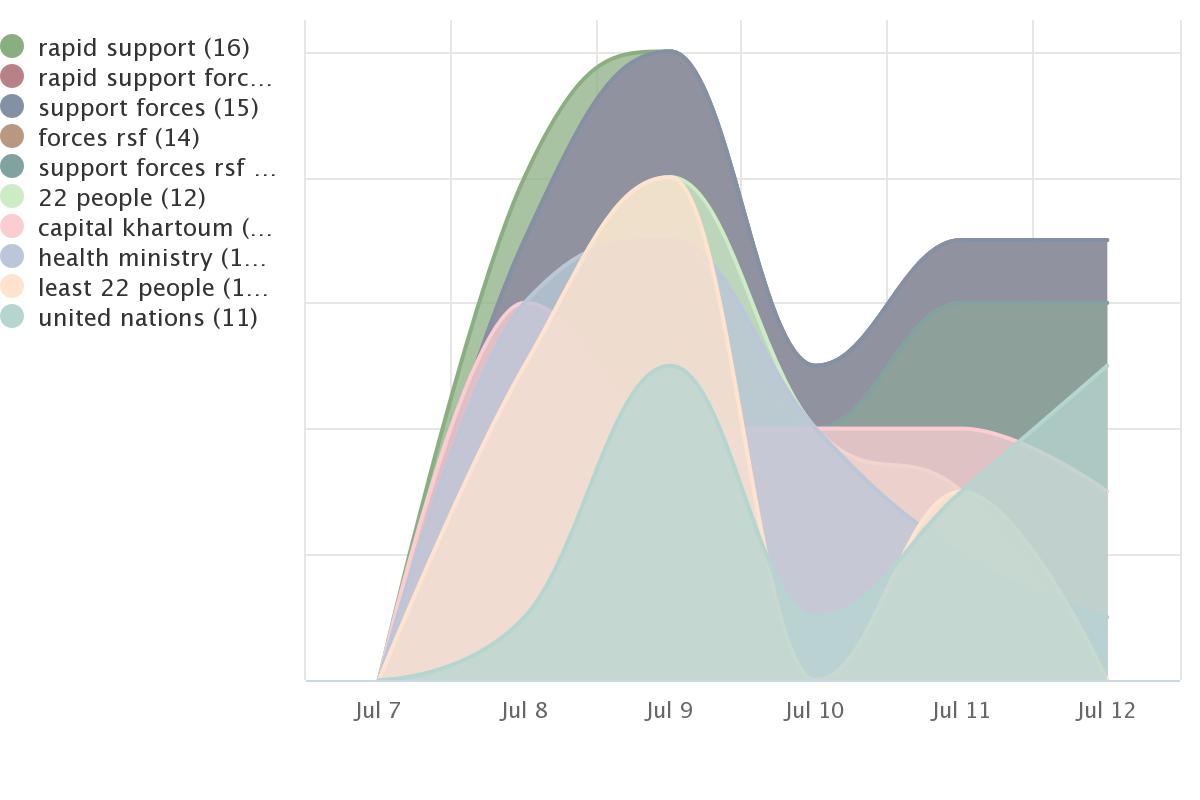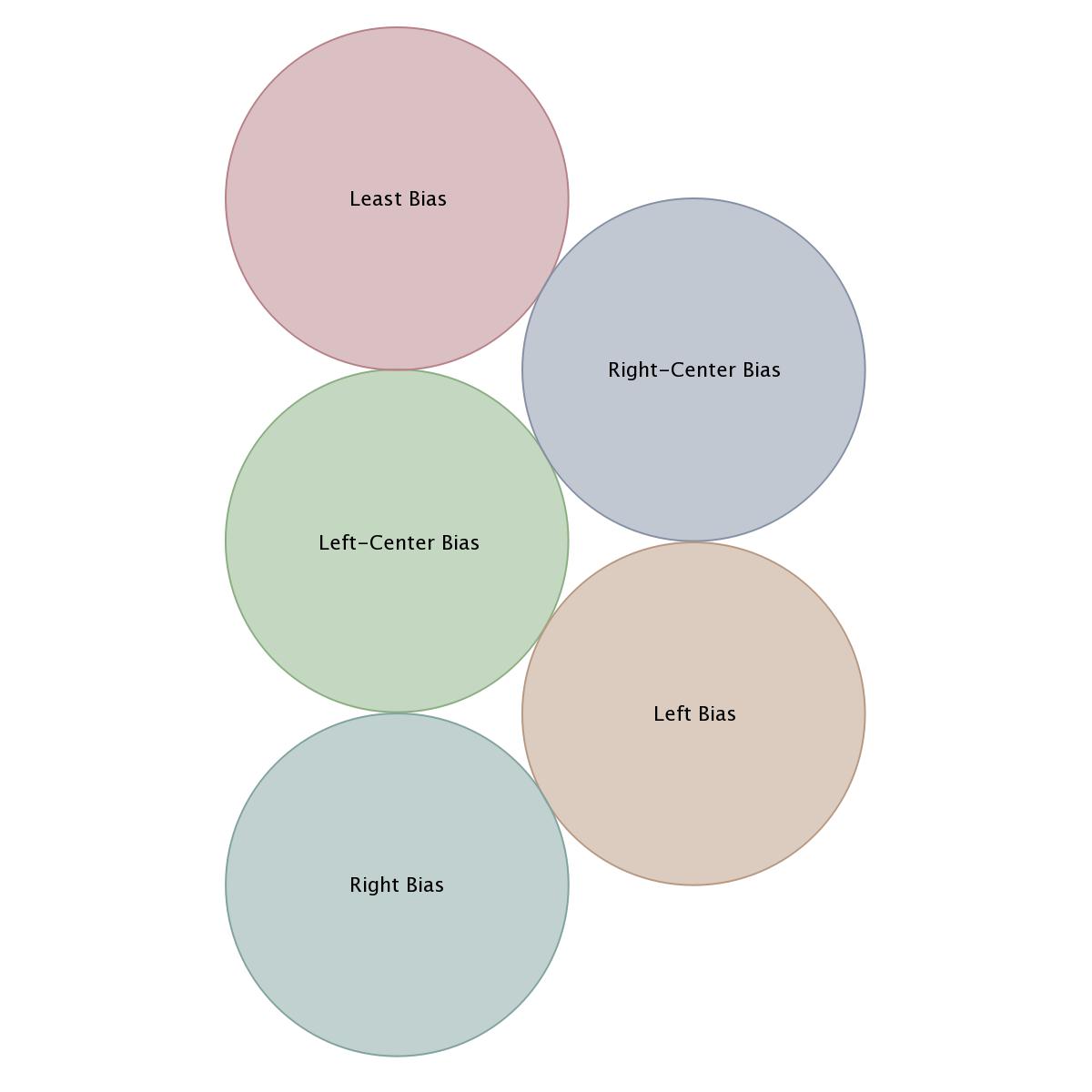
An airstrike in Omdurman, Sudan has resulted in the deaths of at least 22 people and has sparked ethnic violence in the region. The attack has been condemned by the UN Secretary-General, who has expressed concern over the escalating violence. The situation in Sudan remains volatile, with ongoing conflict between military and paramilitary forces.
Our Kudzu Narrative Intelligence briefs auto-update every few hours with fresh analysis:
The airstrike in Omdurman, Sudan has resulted in the loss of lives and has heightened tensions in the region. Key details include:
Key Takeaways:
The ongoing conflict in Sudan has led to a volatile situation, with ethnic violence erupting in various regions. Key details include:
Key Takeaways:
The UN Secretary-General has condemned the airstrike in Omdurman and expressed deep concern over the escalating violence. Key details include:
Key Takeaways:
The top surfaced keywords in Sub-Saharan Africa include "rapid support," "support forces," and "22 people." These keywords are related to the ongoing conflicts and violence in the region. The presence of "neighbouring countries" suggests the involvement of multiple nations in these conflicts. Additionally, keywords like "human rights law" and "humanitarian and human" highlight the concerns for human rights violations and the need for humanitarian aid in the region. The keywords "north kordofan," "south kordofan," and "blue nile" indicate specific areas where the conflicts are concentrated. The repetition of certain keywords like "paramilitary rapid support forces" and "sudanese armed forces" suggests their significant role in the narratives surrounding the conflicts.
In U.S. media, keywords like "people have fled," "rsf blamed," and "warring factions" are prominent. These keywords emphasize the displacement of people due to the conflicts and attribute blame to the Rapid Support Forces (RSF) and the warring factions involved. The mention of "rival generals" suggests power struggles within the military. Additionally, keywords like "health minister" and "military coup" indicate the impact of the conflicts on governance and public health. The repetition of certain keywords like "health authorities" and "crossed into neighboring" highlights the urgency of the situation and the need for international intervention.
Keywords found only in MENA media include "abdel fattah," "sudanese armed," and "women and girls." These keywords suggest a focus on the role of specific individuals, such as Abdel Fattah al-Burhan, and the involvement of the Sudanese Armed Forces in the conflicts. The mention of "women and girls" highlights the impact of the conflicts on vulnerable populations. Additionally, keywords like "health ministry said" and "mediation efforts" indicate the efforts made by the government and international organizations to address the situation. The repetition of certain keywords like "west darfur" and "addis ababa" suggests their significance in the narratives surrounding the conflicts.

All Sources in Sub-Saharan Africa

All Sources in U.S. Media

All Sources in MENA Media
Our Narrative Intelligence provides insights into bias in U.S. media through our Narrative AI. In our analysis, we found significant numerical differences in media coverage across political leaning. Left-Center sources had the highest bias with 18 instances, followed by Least Bias with 13 instances. Right-Center sources had 10 instances, while Left Bias had 7 instances, and Right Bias had 3 instances.
These percentages reveal the varying degrees of bias in U.S. media. Left-Center bias was around double that of Right-Center bias, while Left Bias was more than double that of Right Bias.
Overall, our Narrative Technology enables us to provide a comparative analysis of bias in U.S. media, highlighting the numerical differences across political leaning.

All Sources in U.S. Media
Note: Kudzu Narrative Intelligence briefs update every few hours. Very likely, the Narrative Analysis data visualization depicted in the graphic above will have changed as well.
Image Credit for Article Header: Hind Mekki ElMardi, CC BY-SA 4.0, via Wikimedia Commons